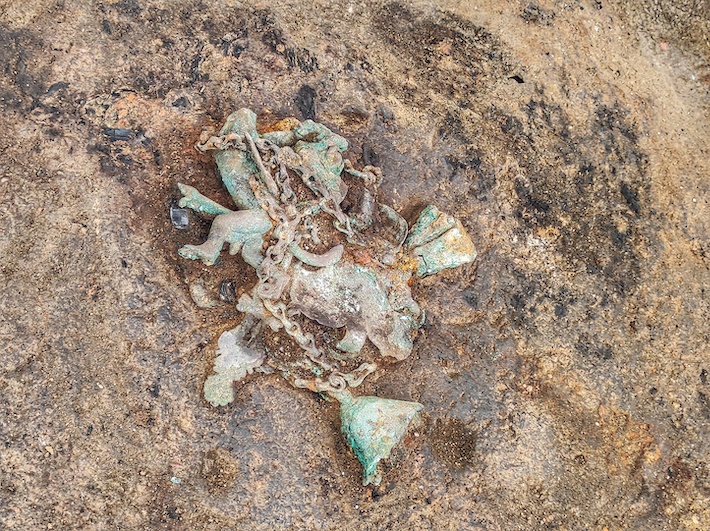 BELGRADE, SERBIA—Live Science reports that a tintinnabulum, or Roman wind chime, has been uncovered in eastern Serbia at the Viminacium archaeological site. The city was the capital of Rome’s Upper Moesia province between the first and fifth centuries A.D. The bronze artifact, found near the porch of a large home on a main city street, features a prominent phallus with wings, legs, and a tail. It has not yet been removed from its surrounding soil. “Judging by what can be seen … it had four bells and the chain from which it hung,” said Ilija Danković of Belgrade’s Institute of Archaeology. The phallus symbol was believed to bring good fortune, prosperity, and happiness while combating the evil eye and deterring thieves. This tintinnabulum was likely imported to Viminacium, and suggests that its residents shared Roman beliefs, Danković concluded. To read about an ancient ship unearthed in a strip mine near Viminacium, go to "Roman River Cruiser."
BELGRADE, SERBIA—Live Science reports that a tintinnabulum, or Roman wind chime, has been uncovered in eastern Serbia at the Viminacium archaeological site. The city was the capital of Rome’s Upper Moesia province between the first and fifth centuries A.D. The bronze artifact, found near the porch of a large home on a main city street, features a prominent phallus with wings, legs, and a tail. It has not yet been removed from its surrounding soil. “Judging by what can be seen … it had four bells and the chain from which it hung,” said Ilija Danković of Belgrade’s Institute of Archaeology. The phallus symbol was believed to bring good fortune, prosperity, and happiness while combating the evil eye and deterring thieves. This tintinnabulum was likely imported to Viminacium, and suggests that its residents shared Roman beliefs, Danković concluded. To read about an ancient ship unearthed in a strip mine near Viminacium, go to "Roman River Cruiser."
Roman Windchime Discovered in Serbia
News November 15, 2023

Recommended Articles
Digs & Discoveries November/December 2018
Hand of God
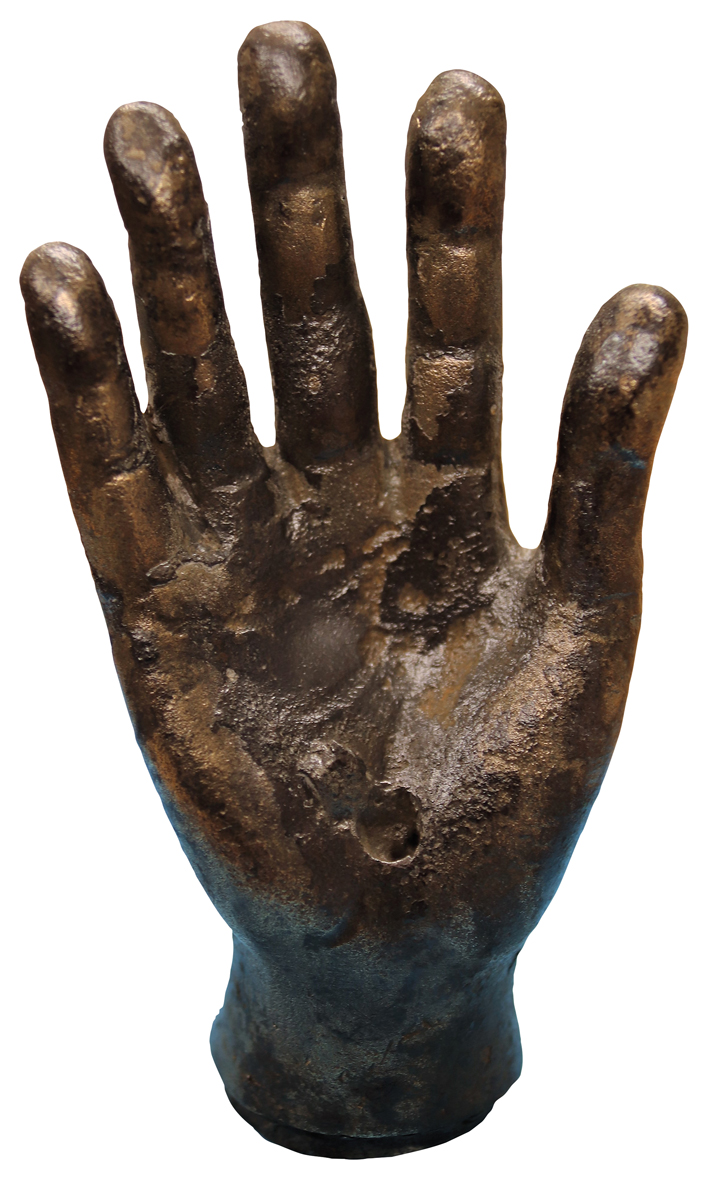
Digs & Discoveries March/April 2026
Roman River Barge
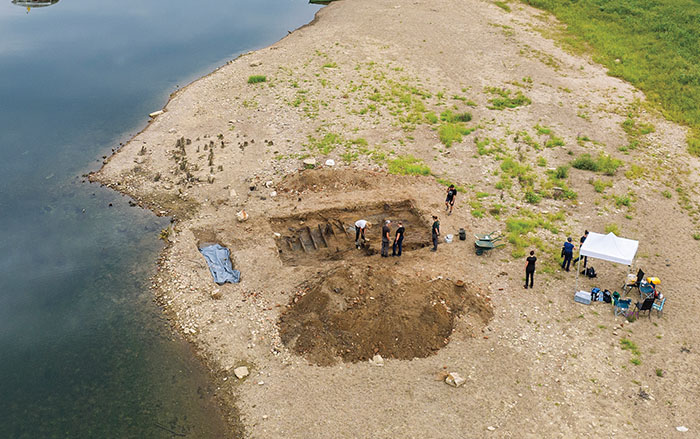
Digs & Discoveries March/April 2026
Roman Gaul’s Literati
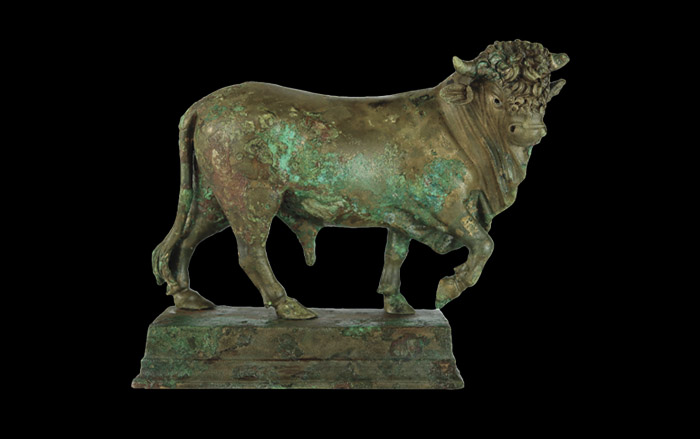
Features January/February 2026
The Cost of Doing Business
Piecing together the Roman empire’s longest known inscription—a peculiarly precise inventory of prices

-
Features September/October 2023
Ukraine's Lost Capital
In 1708, Peter the Great destroyed Baturyn, a bastion of Cossack independence and culture
 (Leonid Andronov/Alamy Stock Photo)
(Leonid Andronov/Alamy Stock Photo) -
Letter from Vesuvius September/October 2023
Digging on the Dark Side of the Volcano
Survivors of the infamous disaster rebuilt their lives on the ashes of the a.d. 79 eruption
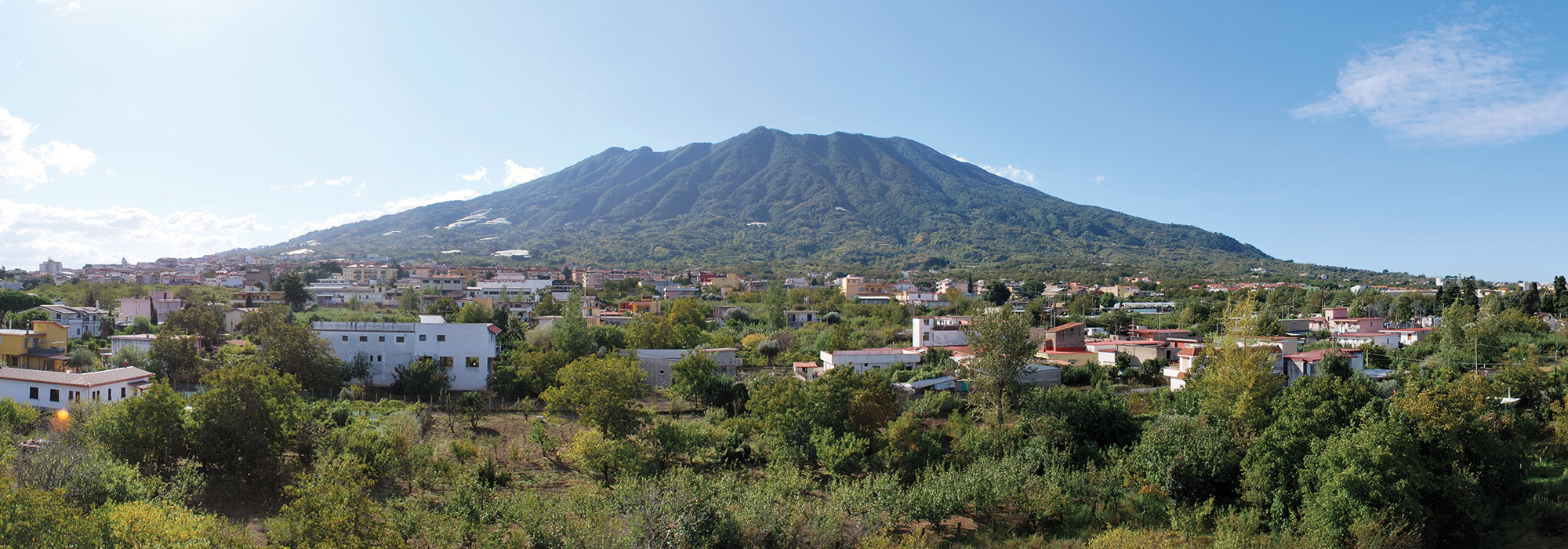 (Courtesy Girolamo Ferdinando De Simone)
(Courtesy Girolamo Ferdinando De Simone) -
Artifacts September/October 2023
Padlock
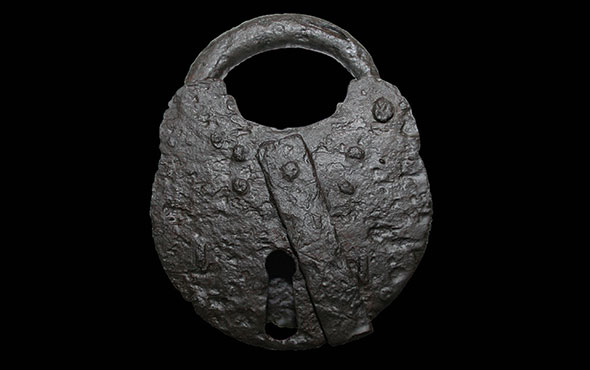 (Courtesy James Davidson)
(Courtesy James Davidson) -
Digs & Discoveries September/October 2023
Nose to Tail
 (Lisa See collection. The Huntington Library, San Marino, California)
(Lisa See collection. The Huntington Library, San Marino, California)


